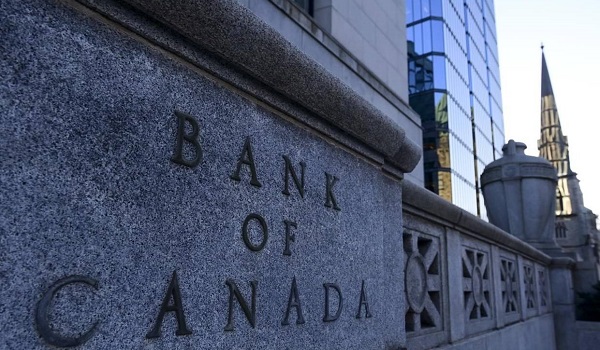Interest rates will further fall, while fixed mortgage rates are likely to drop by much smaller amounts
The Bank of Canada is widely expected to cut its headline interest rate by an additional 2 or 2.5 percentage points in the coming year, but fixed rates for five-year and three-year mortgages will likely drop by much smaller amounts.
That’s because banks and mortgage providers often set their long-term mortgage rates based on the performance of bond markets. In general, weaker bond yields tend to align with lower rates, while stronger ones correspond with higher rates.
BMO senior economist Robert Kavcic says bond markets dropped considerably over the summer as they priced in universally expected rate cuts from the U.S and Canadian central banks throughout 2024 and early 2025.
But in the last couple weeks, the bond market saw a small rebound as the U.S. economy showed unexpected strength, and there’s some debate as to what it all means going forward.
“In the last couple weeks that momentum has stalled out because expectation of rate cuts, especially in the U.S. has been dialled back, and that has a spillover effect in Canada because our bond yields have alignment with the U.S.,” Mr. Kavcic said in an interview.
He added that Tuesday’s lower-than-expected inflation report means that quicker and steeper interest rate cuts are expected from the Canadian central bank. At 1.6 per cent in September, the inflation rate dropped below 2 per cent for the first time in more than three years
Mortgage rates for five-year fixed terms are floating just above the 4-per-cent mark at many financial institutions in early October; rates under 4 per cent were available at some institutions in September. Mr. Kavcic and other experts expect that five-year rates will bottom out somewhere between 3.5 and 4 per cent in 2025.
Ron Butler, a Toronto-area mortgage broker, said he has no doubt that mortgage rates will continue to fall, especially as the Canadian economy struggles to rebound at the same pace as our neighbours to the south, meaning that further interest cuts are much needed.
However, he agrees that fixed five-year mortgage rates will reach a low somewhere between 3.5 and 4 per cent.
“It’s important for the Canadian consumer to realize there’s not going to be a 2.9 per cent rate this year or next year, it’s not in the cards,” said Mr. Butler.
For Canadian buyers actively looking to purchase a home, experts say the coming months could be a period where interest rates are relatively low, while the real estate market remains quiet.
Mr. Kavcic said he expects buyers may start re-entering the market in early or mid-2025, once the five-year fixed rate dips solidly below 4 per cent.
“When you get mortgage rates at something below 4 per cent, I don’t want to say it becomes affordable or overly compelling for an investor, but at least it’s not completely unreasonable any more at that level,“ said Mr. Kavcic.
“You’ll incrementally start to get some people coming back into the market.”
Mr. Butler said people who are purchasing now should seriously consider variable-rate mortgages, if their financial situation can handle the risk associated with them.
“What we say to anybody who can handle it is take variable, because in around four months the variable will be about the same as you’re taking for a three-year fixed,” said Mr. Butler.
He said the added benefit of a variable-rate mortgage is the opportunity to lock in a rate down the road, giving people an opportunity to secure a better fixed interest rate in the coming months.
“If we end up at rates below 3.98 per cent, wouldn’t you like to have a chance to lock in to those rates?” he asked.
This article was first reported by The Globe and Mail













